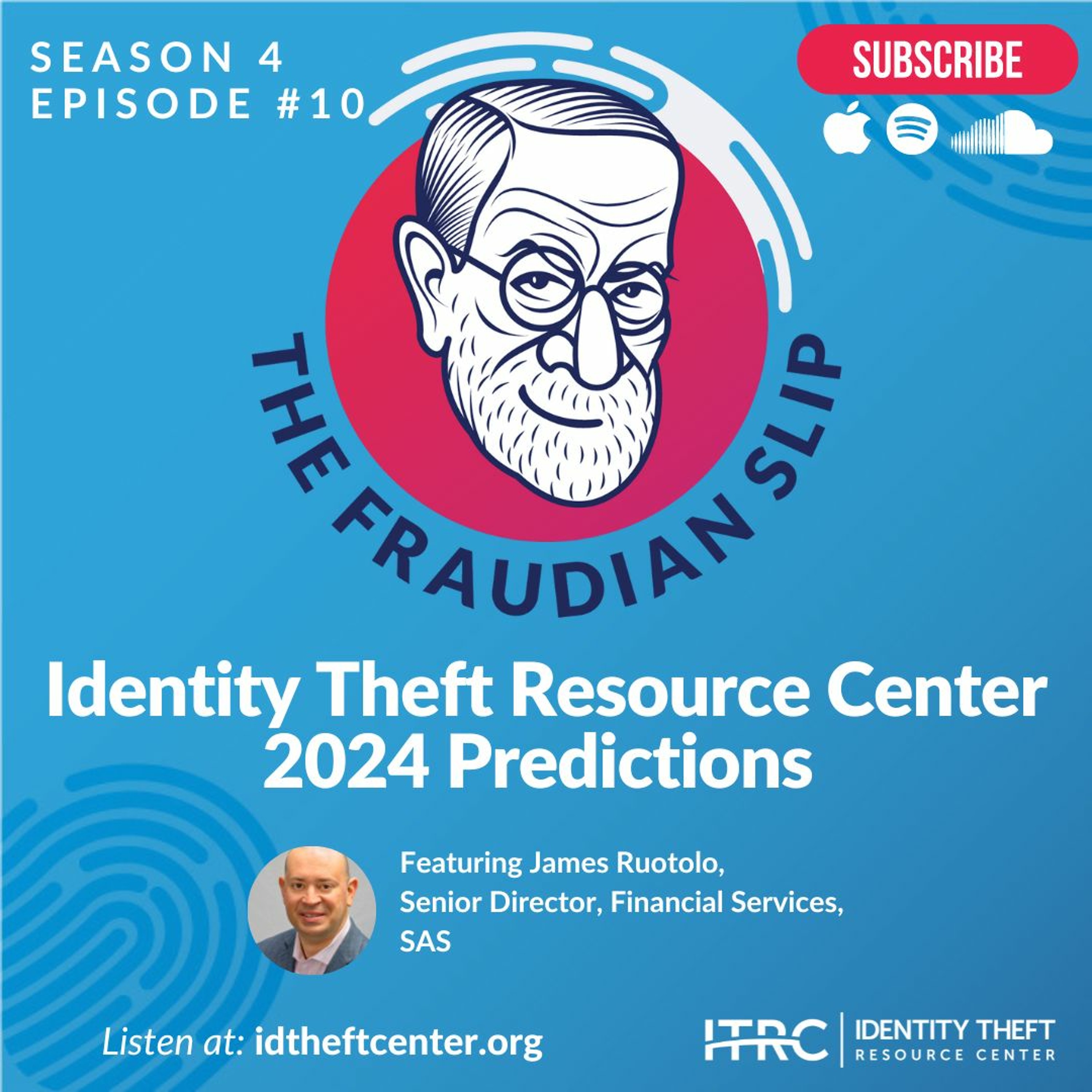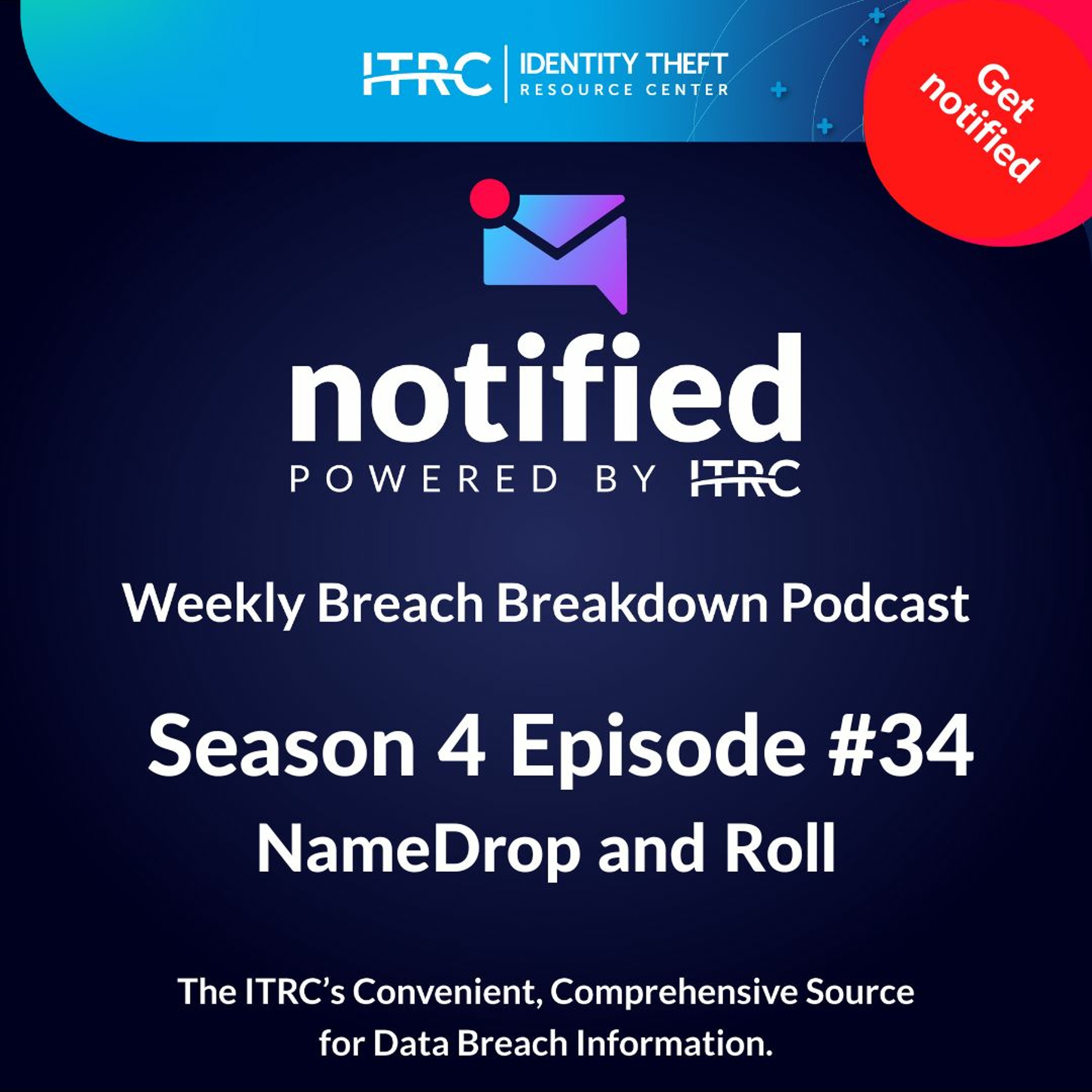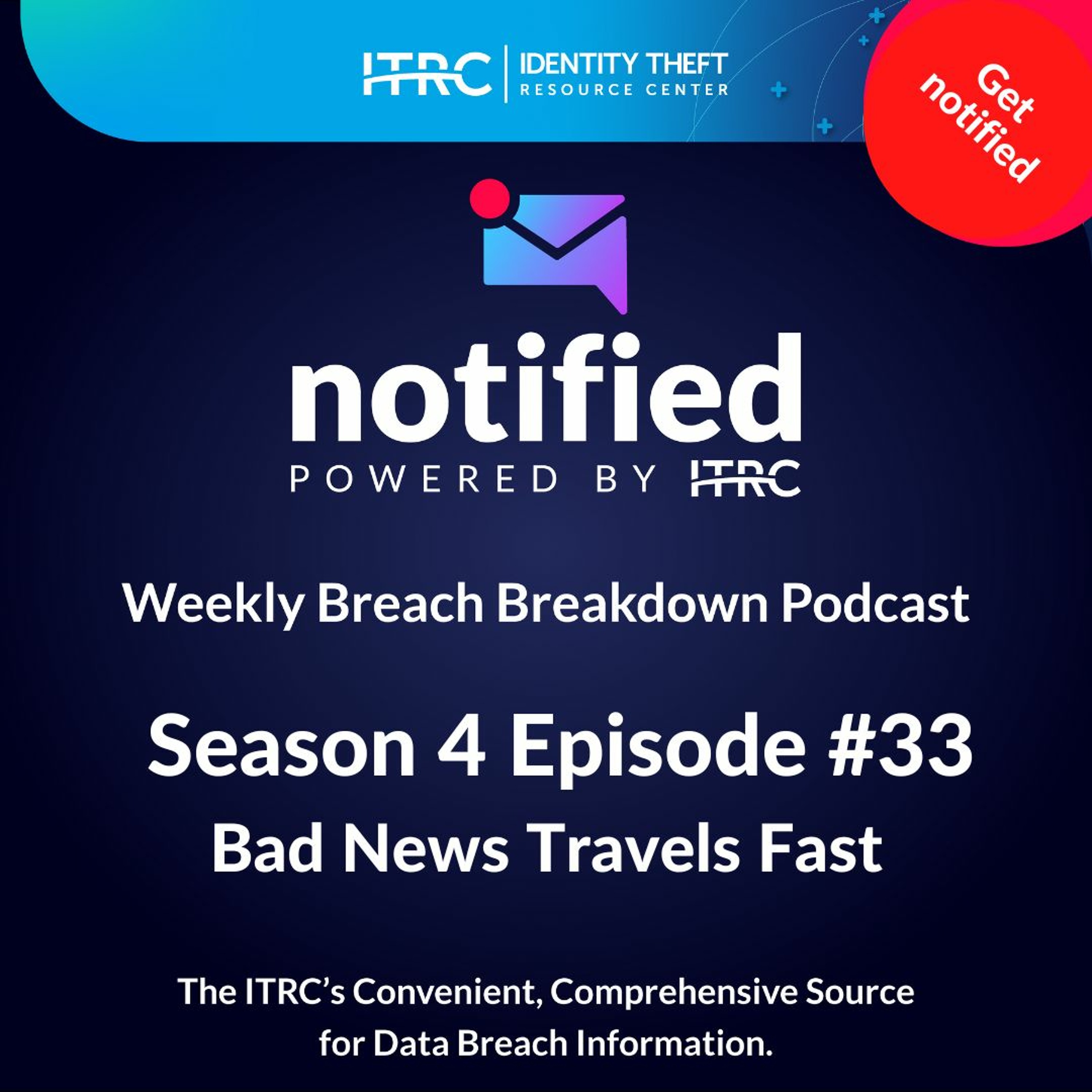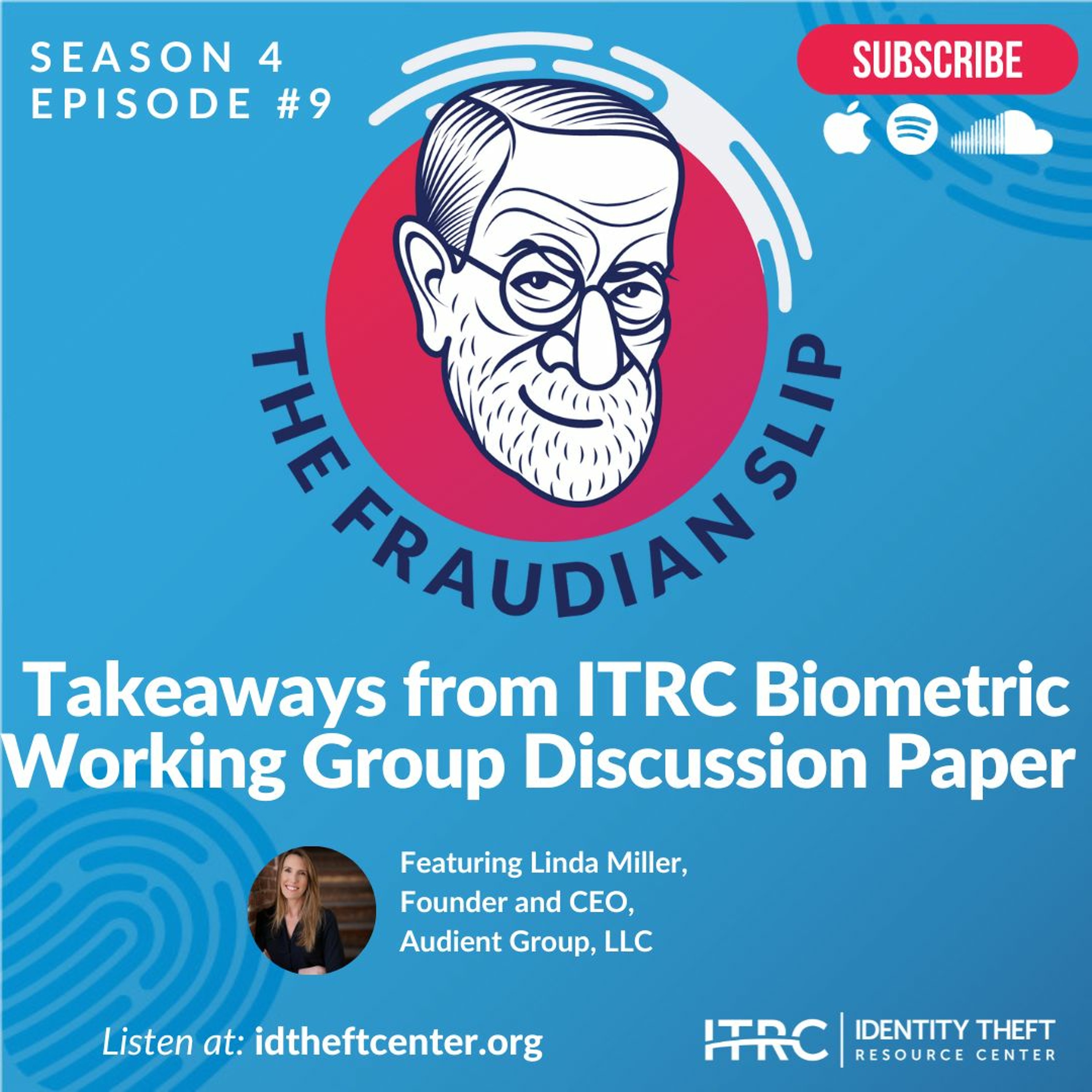This month, we are focusing on our latest paper: The Biometric Working Group Discussion Paper.
Show Notes
Follow on LinkedIn: www.linkedin.com/company/idtheftcenter/
Follow on Twitter: twitter.com/IDTheftCenter
Show Transcript
Welcome to The Fraudian Slip, the Identity Theft Resource Center’s (ITRC) podcast, where we talk about all things identity compromise, crime and fraud that impact people and businesses. Listen on Apple, Google, Spotify, SoundCloud, Audible and Amazon now. In this month’s episode, we are circling back to a topic we discussed earlier this year when the ITRC launched a working group to look at the issues surrounding the use of biometrics in proving a person is who they claim to be. To say this is a controversial subject is akin to saying water is wet and ice is cold.
We entered the conversation amidst a lot of shouting that tended to overlook some key points – particularly what lawyers refer to as subtle but distinct differences. In particular, the differences between the highly controversial use of facial recognition tools and the use of facial biometrics used to verify a person’s identity.
Subtlety and practicality are often lost in a discussion of highly complex subjects. That’s one reason the ITRC convened a group of policy, academic, technical and business experts paired with our victim advocates. The Biometric Working Group (BWG) had one guiding principle: Exploring practical biometric solutions that will help prevent identity crimes in an equitable and unbiased manner while respecting privacy and ensuring data protection.
This week, the ITRC’s BWG released a discussion paper we hope will spur a broader discourse on how, not if, to expand the use of next-generation identity processes that include facial verification, also known as facial comparison. That’s very different from the controversial “facial recognition” that draws headlines for its use by law enforcement and intelligence agencies.
Here to help us draw the distinctions between the two forms of facial biometrics and why we need new forms of identity verification is a member of the ITRC BWG, Linda Miller. Miller is the Founder and CEO of a Washington D.C.-based consultancy – the Audient Group. She is joined by the ITRC’s own President and CEO, Eva Velasquez.
We talked with Linda Miller about the following:
- You served in a leadership role at the Pandemic Response Accountability Committee (PRAC). What did we learn during the pandemic about identity verification systems?
- What is preventing the broader adoption of biometrics, especially facial verification, which is also known as facial comparison?
- How will comparing a selfie to a document such as a driver’s license be effective when a very high-quality (fake) driver’s license can be purchased online and used to imitate the intended victim with the bad actor’s picture?
- What happens if we don’t adopt facial verification as a common process?
We talked with Eva Velasquez about the following:
- Why did the ITRC form the BWG?
- What would be the benefits of wider use of facial verification, especially for identity crime victims?
- Talk about bias in the use of biometrics and risks to privacy.
- What happens if we don’t adopt facial verification as a common process?
To learn more about Linda Miller and Audient Group, visit www.audientgroup.com. To download the ITRC’s BWG discussion paper, visit www.idtheftcenter.org/publications or click here.
Contact the ITRC
If you think you have been the victim of an identity crime or want to avoid becoming a victim, you can speak with an expert advisor on the phone (888.400.5530), chat live on the web or send us an email during our normal business hours (6 a.m.-5 p.m. PST Monday-Friday). Just visit www.idtheftcenter.org to get started.
We will be back next week with a new episode of our sister podcast, the Weekly Breach Breakdown, and in two weeks with a new episode of the Fraudian Slip breaking down the ITRC 2024 predictions.
Listen On
Also In Season 4
-

The Fraudian Slip Podcast ITRC - 2024 Predictions
Welcome to the Fraudian Slip…the Identity Theft Resource Center’s podcast where -

The Weekly Breach Breakdown Podcast by ITRC - NameDrop and Roll - S4E34
Welcome to the Identity Theft Resource Center’s Weekly Breach Breakdown for Dece -

The Weekly Breach Breakdown Podcast by ITRC - Bad News travels Fast - S4E33
Welcome to the Identity Theft Resource Center's Weekly Breach Breakdown for Nove
